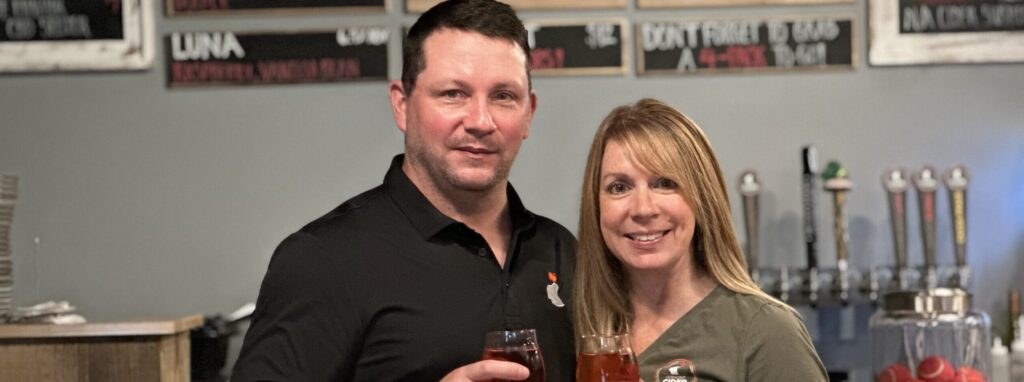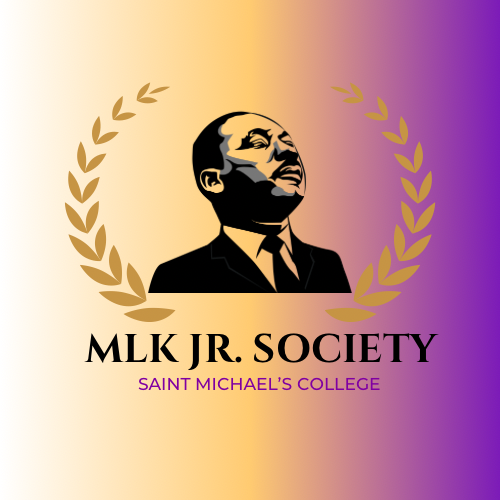Farm on campus leads to success
Farm at Saint Michael's leads to jobs for 2019 graduates

Nick Sette ’19 on a field walk with his crew mates at Cape Cod Organic Farm in Barnstable, Mass.
“My time at the Farm at Saint Michael’s College allowed me the time, resources, and opportunities to look into what the food system had to offer for careers,” says Annie Hogan ’19, an environmental studies graduate with an education minor who now is employed as a crew/team leader at the Farm at Vermont Youth Conservation Corps in Richmond, VT.
Hogan says her role as Education and Outreach Coordinator at the Saint Michael’s Farm while a student afforded her the leadership and communication skills necessary to confidently assume her current tasks. Testifying to the Farm Program’s relevance to real-world jobs after graduation is the fact that six other Farm regulars from the Class of 2019 along with Hogan are now employed in positions at the agricultural base of the food system industry, six of those in Vermont.
All seven studied environmental studies & science during their time at St. Mikes: Caroline Bennett is working alongside Hogan at the Farm at Vermont Youth Conservation Corps; Meghan Chan is expanding upon her knowledge of plant care, plant varieties, and tricks of the gardening trade at Gardener’s Supply in Williston, VT; Sarah Rodgers is teaching school-aged children about food, farm, and forest as an Outdoor Educator at Shelburne Farms; Kristen McDowell is both a crew member at Half Pint Farm and the Director of Market Operations for the Burlington Farmers’ Market; Colin O’Brien spends his days maintaining crops, preventing weed growth, and preparing produce as a member of the farm crew at Pitchfork Farm in Burlington, VT; and Nick Sette is working at Cape Cod Organic Farm in Barnstable, MA, as a farm hand and farm stand staff.
While the Farm has seen increased numbers of graduates land jobs within the food system industry ever since its first production season in 2016, this year was marked by the largest growth yet, and Farm Program Coordinator Kristyn Achilich couldn’t be more proud. “It just blew me away,” Achilich told her group of current students—most of whom are rising seniors—as they gathered in the middle of the garden in late June to discuss the power of education and hands-on experience within the agricultural industry.
A group of students pose with workers from Vine Ripe Greenhouse Construction after building the Farm’s second hoop house this year.
The marriage between learning and doing is a common topic of conversation for Achilich and her students. The Farm at Saint Michael’s, Achilich says, is not a production farm, but an opportunity for students to take their learning beyond the classroom. She explains that, prior to the Farm’s existence, students studying disciplines such as environmental studies, science, psychology, and philosophy weren’t frequently afforded a canvas for application to complement their learning. Topics such as climate change, human behavior, improving nutrition, improving social outcomes of food systems—“that all largely stayed in the classroom until four years ago, when we were able to bring it some of the learning to the field.”
Hands-on learning seems to be at the heart of the mission for all those involved. “I feel like I’ve learned so much more here than I have ever in a class,” said Annika Coloney ’21, current student of the Farm. Emma Clark ’20 agrees: “Being down here and actually having hands on experiences and seeing all the teamwork that goes into this is really important,” she said. Sitting alongside them were senior Farm students Annabelle Elvidge, Katie Tota, Lindsay St. Pierre, Sarah Graham, Marie Smyth, and Rachel High.
“One of the things that this group does really well is transition between the love and passion for this work and the literal sweat, dirt, and tears that happen down here and then advocating for this as a viable profession. The very fact we produce food is merely the byproduct of understanding plant biology, soil chemistry, a healthy dose of physics, a few internships, and research projects. What the students take away is an immersive experience in collaboration, coordination, communication, problem solving, and critical thinking. What’s more, they procure the knowledge and guidance from myself and other professors to unpack what it all means for the state of education on social engagement and change, our economies, our social fabric, and connection to the historical roots of our country,” Achilich said about her current students, who join her whenever possible to counter by example or friendly, gentle education the general ignorance and stereotypes that often surround farm work among the general public. “The perception of food production and farming needs to change if we’re going to have any effect on the environment changing,” she says.
Sarah Rodgers poses with a baby goat at Shelburne Farms in the Children’s Farm Yard.
She sees the recent crop of students now gainfully employed in agricultural position as a validation of the passion, awareness, and sensitivity that she tries to instill in the hearts of her students.
“Kristyn always emphasized the education part of food, community, education,” says Sarah Rodgers, one of the graduates. “Now I see why.”





